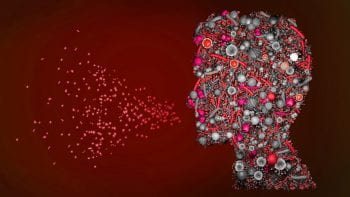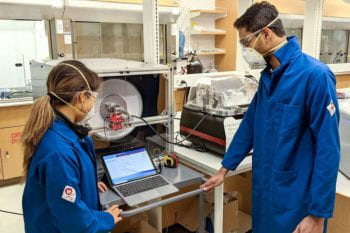Chakrabarty, Cirrito to develop test with $3.6 million grant from Flu Lab
Team to develop breathalyzer test for COVID, RSV, influenza A


Chakrabarty, Cirrito to develop test with $3.6 million grant from Flu Lab

Scientists at Washington University in St. Louis have developed a breath test that quickly identifies those who are infected with the virus that causes COVID-19. The device requires only one or two breaths and provides results in less than a minute. The study is available online in the journal ACS Sensors. The same group of […]

Now that the emergency phase of the COVID-19 pandemic has ended, scientists are looking at ways to surveil indoor environments in real time for viruses. By combining recent advances in aerosol sampling technology and an ultrasensitive biosensing technique, researchers at Washington University in St. Louis have created a real-time monitor that can detect any of […]

Women are about twice as likely as men to be diagnosed with Alzheimer’s disease. Some of that is age; in the U.S., women outlive men by five to six years, and advanced age is the strongest risk factor for Alzheimer’s. But there’s more to it than that, so Alzheimer’s researchers continue to look for other […]

Researchers at Washington University School of Medicine in St. Louis have found a new druggable pathway that potentially could be used to help prevent Alzheimer’s dementia. Amyloid beta accumulation in the brain is the first step in the development of Alzheimer’s dementia. Scientists have poured countless hours and millions of dollars into finding ways to […]

As the COVID-19 pandemic surged last summer and contact tracers struggled to identify sources of infections, John Cirrito, PhD, an associate professor of neurology at Washington University School of Medicine in St. Louis, and Carla Yuede, PhD, an associate professor of psychiatry, began to kick around an idea. Could a biosensor they’d developed years ago for Alzheimer’s disease […]